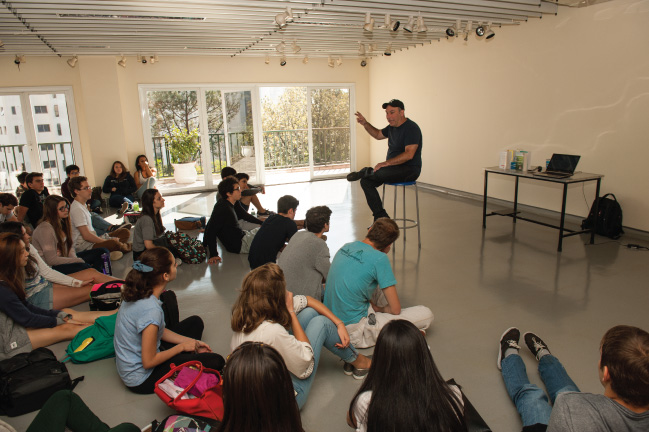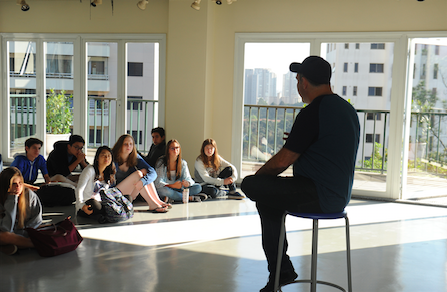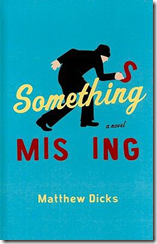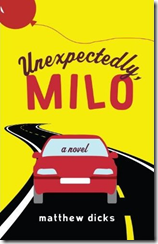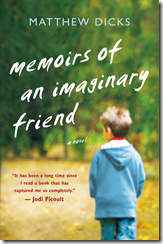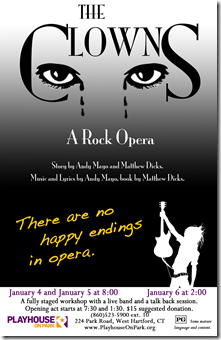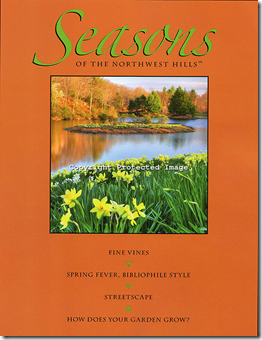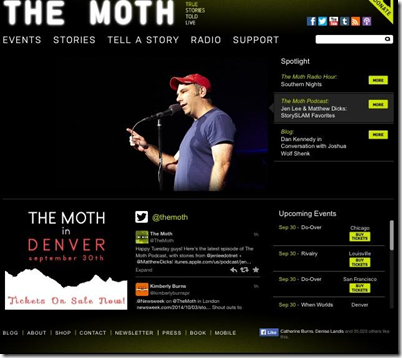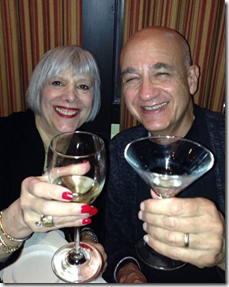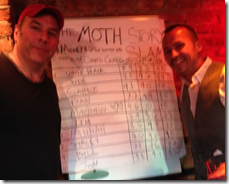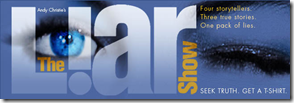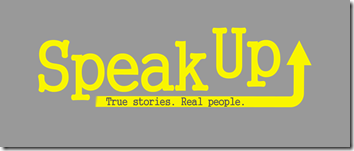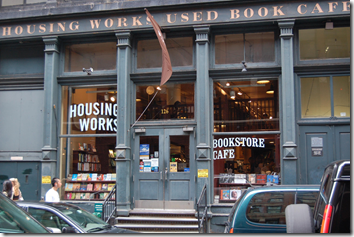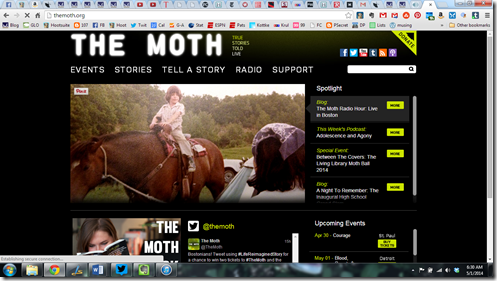The worst thing you can say to a storyteller (you passive-aggressive douchebag)
/While in Brazil, I spoke to audiences as small as 50 and as large as 500. Part of every talk was one more stories from my life, similar to the stories that I tell onstage for The Moth, Speak Up, and similar organizations.
I made it clear to every audience that the stories I tell are true. I explained that although there are storytellers who specialize in folk tales, fables, and other types of fiction, my brand of storytelling is personal and real.
While eating lunch with a group of adults following one of these talks, a person at the table told me that he liked my story a lot.
"I don't know how true the story was, but it was a good one either way."
This is a passive-aggressive means of calling a storyteller a liar, and these kinds of statements never sit well with me. There have been times when I have questioned the veracity of a storyteller, and while I might express my doubts privately to my wife or a close friend, I would never question the storyteller, especially in mixed company.
Even if I saw a reason to question the truthfulness of a storyteller (and I can't think of one), I would do so both privately and directly. Maybe if I was casting a show and unsure about the truthfulness of a story, I might probe a bit. See if there was a hint of falsehood in the storyteller's answers. But again, I would be discreet and direct.
Passive-aggressiveness is for cowards. It's not as vile or gutless as an anonymous criticism, but it's close.
My honesty as a storyteller was questioned once before. After telling a story in New York about cheating on a science fair project in high school, I went to the bar to get a drink. A man standing beside me in line complimented my story and then said, "I'm not sure if it really happened, but the way you told it was great."
I assured the passive-aggressive weasel that my story was true and returned to my seat. I was tempted to mention that I have a newspaper clipping that details my unexpected science fair success, and I have friends from high school who could attest to the veracity of the story, but I thought that doing so would be a waste of time.
But three years later, that stranger's comment still bothers me, as I expect the comment from the man in Brazil will, too.
Why?
I suspect that it has something to do with the seriousness that I apply myself to this art form. Storytelling is important to me. I work exceptionally hard to craft and tell a great story. While I've been known to take the stage on occasion after only a modicum of preparation, most stories take weeks or even months to prepare. Some stories can only be told after decades of reflection. The last thing I want is for someone to belittle my craft and my hard work by implying that I'm a cheat or a liar.
For me, storytelling is an opportunity to share a part of my life with an audience that is ready and willing to listen. It's a chance to speak a truth about my life that I might not normally share. Taking the stage means taking a risk. It's a moment in which I am most vulnerable and exposed.
Accusing me of lying in a moment like that sucks.
It would be easy for me to invent stories about my past in order to win over the crowd and the judges, but oddly enough, I think it would be difficult as well.
Easy because as a fiction writer, I'm sure that I would construct some fantastic bits of fiction for the stage if I really wanted to. I write whole novels based entirely in fiction. A five minute story would probably be a piece of cake.
But where's the fun in that?
But it would also be difficult because I can't imagine connecting emotionally to a fictional story onstage, which in my mind is one of the most critical elements to great storytelling. I would end up as a storyteller who says the words but doesn't feel or experience them as he or she speaks.
That's no way to tell a story.
Either way, I can't stand passive-aggressive douche bags of any kind, and both of these guys fit the bill perfectly.
If you doubt the veracity of a storyteller, keep it to yourself.
Or share your doubts with a friend or loved one privately.
Or question the storyteller privately and directly.
Anything else and you're comparable to the pestilential crud that sticks to the soles of your shoes after stumbling through the men's room at halftime of a Patriots-Ravens football game.
